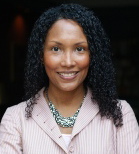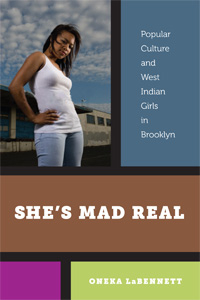LaBennett ’94 Studies West Indian Girls in Brooklyn

Black teenage girls are often negatively represented in national and global popular studies, either as being “at risk” for teenage pregnancy, obesity, or sexually transmitted diseases, or as helpless victims of inner city poverty and violence. These pervasive popular representations often portray Black adolescents’ consumer and leisure culture as corrupt, uncivilized, and pathological.
In her insightful new study She’s Mad Real (New York University Press), Oneka LaBennett ’94 draws on more than a decade of researching teenage West Indian girls in the Flatbush and Crown Heights sections of Brooklyn to argue that Black youth are, in fact, strategic consumers of popular culture—and through this consumption, they are far more active in defining race, ethnicity, and gender than academic and popular discourses tend to acknowledge.
The author also focuses on West Indian girls’ consumer and leisure culture within public spaces (such as a YMCA, a Barnes and Nobles bookstore, a McDonald’s, a movie theater, and a museum), in order to analyze how teens are marginalized and policed as they attempt to carve out places for themselves within New York’s neighborhoods.
LaBennett is assistant professor of African and African American studies and women’s studies at Fordham University, New York City. She is also research director of the Bronx African American History Project (BAAHP). Along with Daniel HoSang and Laura Pulido, she is co-editor of Racial Formation in the Twenty-First Century (forthcoming, University of California Press).

